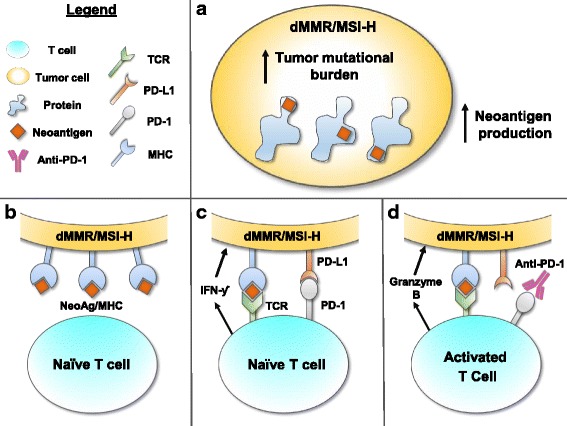Fig. 2.

In patients with dMMR or MSI-H – positive tumors, multiple mutations accumulate and increase the likelihood of immunologically relevant neoantigens (a). Neoantigens are presented in the context of the MHC molecules on the tumor cells (b). T-cells specific for presented neoantigens can become activated initiating a series of molecular events including production and secretion of IFN-gamma by the T-cell (c). Among other things, this will cause up regulation of PD-L1 on the tumor cell which binds to PD-1 on the T-cell and sends a signal to inhibit activation (c). However, interruption of that negative signal (e.g., by an anti-PD-1 antibody) can reinvigorate the T-cell and promote anti-tumor activity (d)
